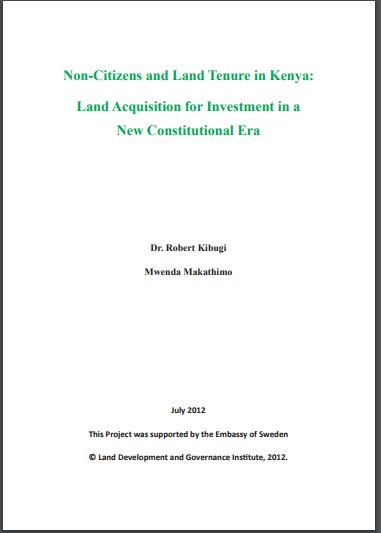Non-Citizens and Land Tenure in Kenya
The acquisition of land by foreigners in developing countries has emerged as a key mechanism for foreign direct investment (FDI). FDI is defined by the Organization for Economic Cooperation and Development (OECD) as the category of international investment that reflects the objective of a resident entity in one economy to obtain a lasting interest in an enterprise resident in another economy.




